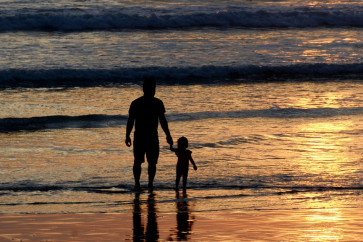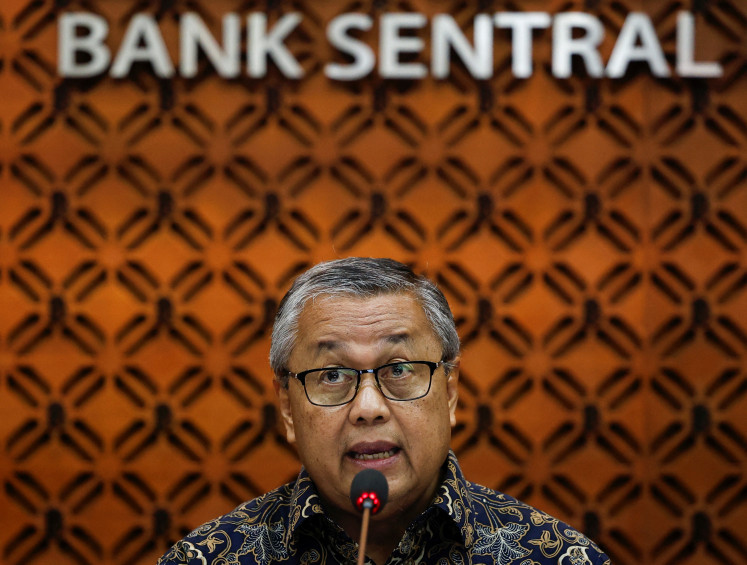Popular Reads
Top Results
Can't find what you're looking for?
View all search resultsPopular Reads
Top Results
Can't find what you're looking for?
View all search resultsJakarta still not friendly for people with disabilities
It was Sunday morning when Trian Airlangga Gembira, Sofia Muchtar, Anisa “Nia” Rahmania, and 12 other people from Jakarta Barrier-Free Tourism gathered at Manggarai Station to set out on a visit to Spatodhea Park in Jagakarsa, South Jakarta
Change text size
Gift Premium Articles
to Anyone
I
t was Sunday morning when Trian Airlangga Gembira, Sofia Muchtar, Anisa “Nia” Rahmania, and 12 other people from Jakarta Barrier-Free Tourism gathered at Manggarai Station to set out on a visit to Spatodhea Park in Jagakarsa, South Jakarta.
“It’s simple, we meet at a public space and use public transportation to reach our destination,” Trian, who is visually impaired, said on Sunday.
Trian is one of the cofounders of Jakarta Barrier-Free Tourism, an open group that seeks to raise awareness about accessibility to public spaces in Jakarta by visiting the actual locations.
Founded in 2012, the group has scheduled 41 impromptu tours to various public spaces in Jakarta, the latest being the visit to Spatodhea Park .
For Sofia, who needs a wheelchair to get around, entering the station was straight away a challenge because the station’s turnstile had to be dismantled so she and her wheelchair could pass.
“I felt hindered at this station. When I arrived here, the ramps were too steep for me to get through alone,” she said.
Because the steps on the station’s underpass were too steep, the group had to cross the tracks to reach platform 6 to get on the KA 1512 commuter train heading to Nambo, which stopped at Lenteng Agung Station, the first stop of the tour.
Sofia and her wheelchair had to be carried over the tracks because the crossing path was filled with gravel. Trian noted that there were no yellow guide marks at Manggarai Station so he needed both his cane and a guide to be able to walk safely.
The group finally boarded the train. The train car was like that of any regular commuter train, with maps of commuter train routes above every door, while the priority seat spots and emergency buttons were located at both ends of each car.
For Nia, who is deaf, visual cues and signs in public spaces are important for her to know where she is going. “Once I wanted to go to Sudirman, but I ended up in Sudimara instead because the visual cues were inadequate,” Nia said, through her interpreter Ulfa.
The group finally reached the park. The park has several shelters with benches to sit on, public toilets and a fitness spot equipped with a variety of sports equipment, although some signs were missing and some walkways in the park were too steep for wheelchair users.
Trian said the group’s 41st tour to Spatodhea Park illustrated the point Jakarta Barrier-Free Tourism sought to make regarding accessibility, while at the same time challenging the idea that disabled people should simply stay at home. “We are stigmatized,” Trian said. (ami)










